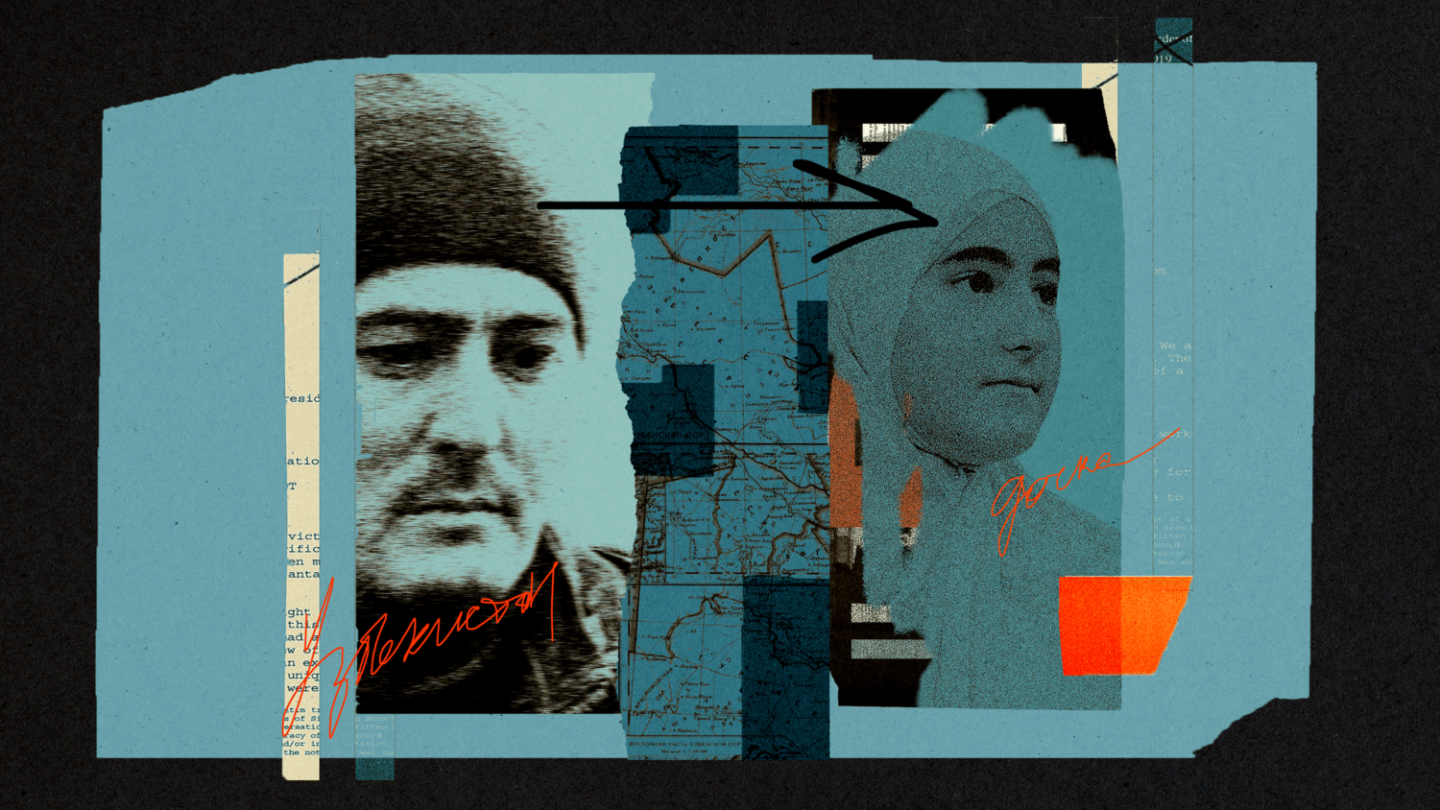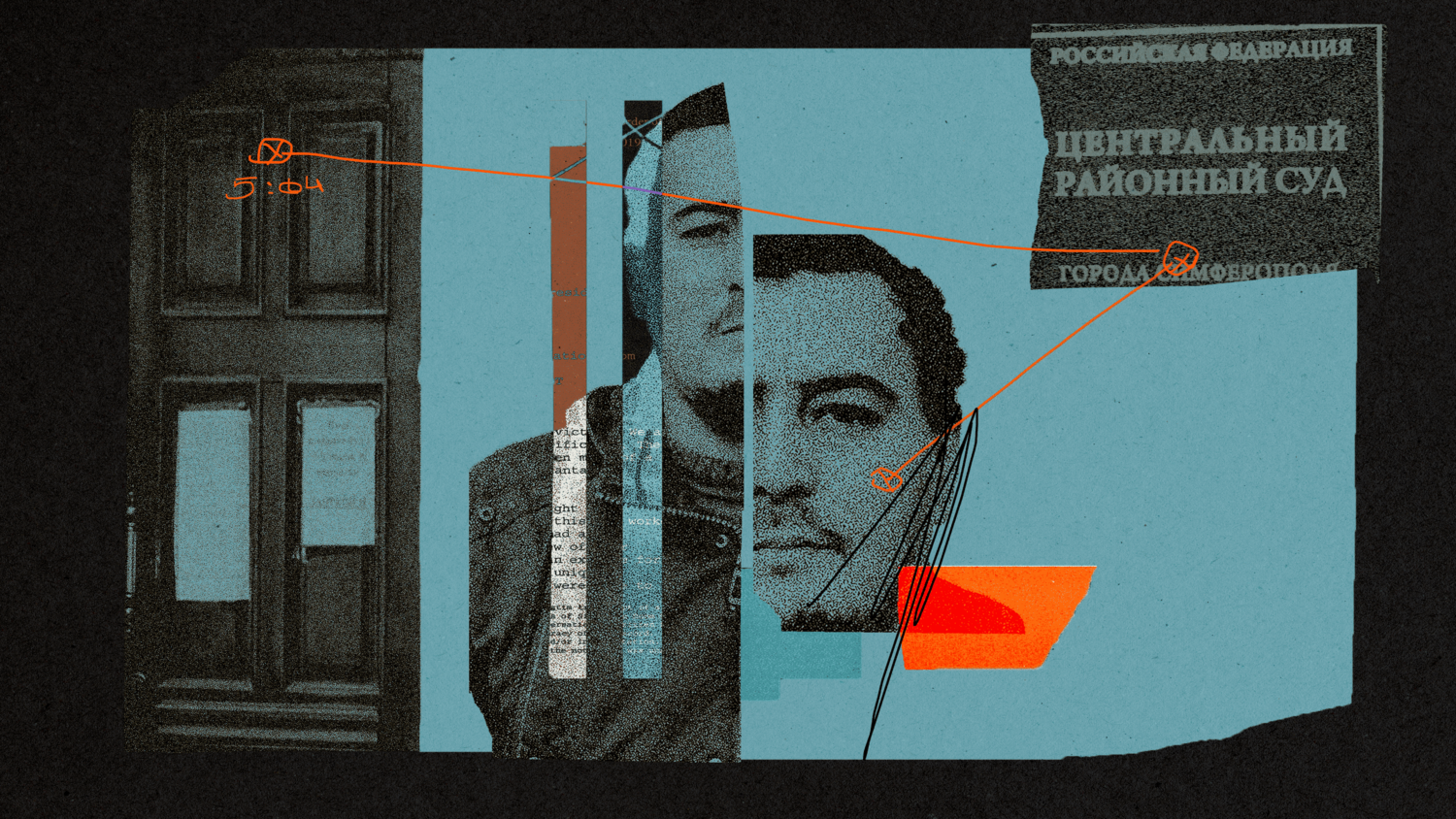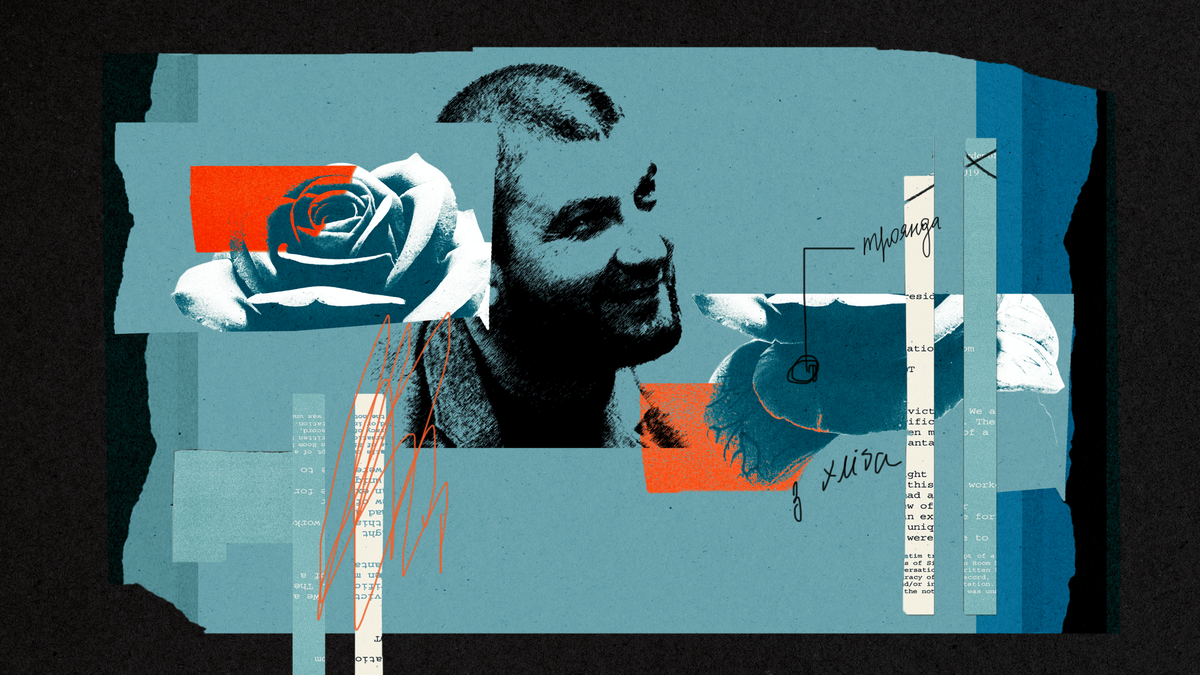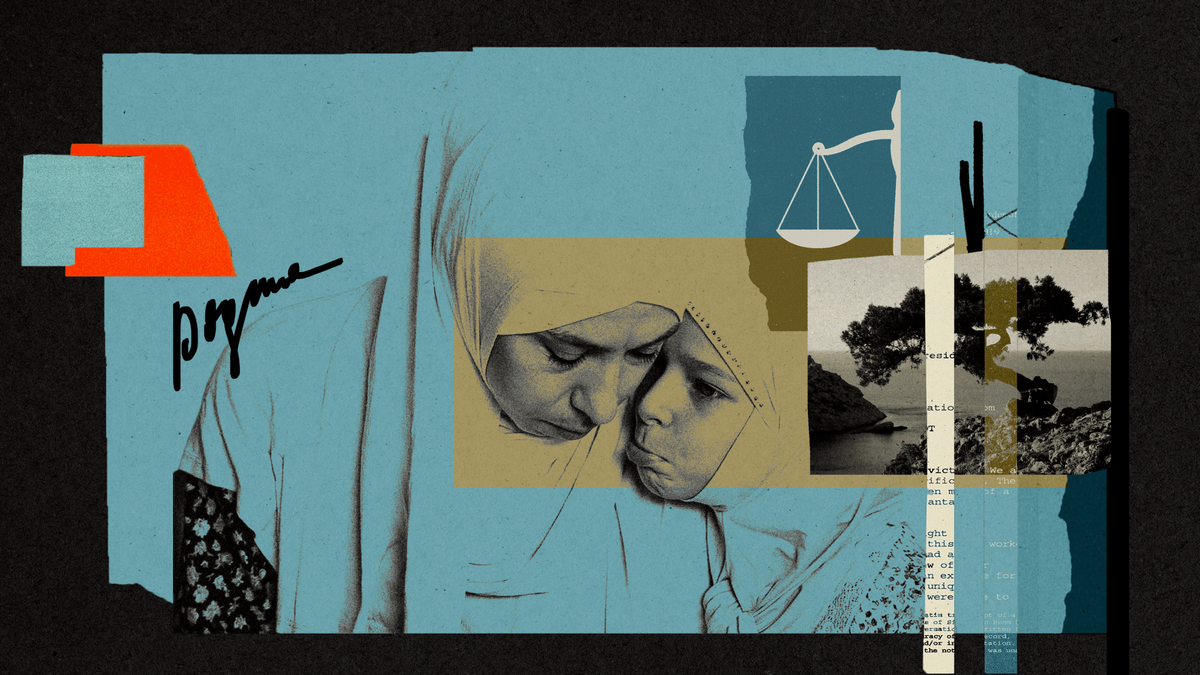Vilen Temerianov is a citizen journalist with the Crimean Solidarity and a correspondent for the Hrani publication. He was born on January 16, 1985, in the city of Koson in the Qashqadaryo region of Uzbekistan. In the early 2000s, he settled in the village of Volne in the Dzhankoi district. He obtained education as an accountant and a welding technician.
On August 11, 2022, the FSB searched his home in the Dzhankoi district, and Temerianov was arrested on charges of terrorism. He was taken into custody the same day. As of this writing, court proceedings are ongoing. Temerianov is one of the figures in the Dzhankoi group of the Hizb ut-Tahrir case.
Temerianov is married and has three children. His youngest son, Khalid, was born with a heart condition and has been diagnosed with tricuspid valve atresia. During his time in prison, Temerianov lost his mother and sister, and he was not allowed to attend either funeral.
§§§
With this narrative portrait, we launch a special project dedicated to the free voices of Crimea. This series of stories about journalists, now political prisoners, is a joint initiative of PEN Ukraine, The Ukrainians Media, ZMINA, and Vivat, supported by NED.
§§§
“We fell asleep in one state and woke up in another.”
The arrest of citizen journalist Vilen Temerianov began like that of many activists in Crimea—with a loud banging on the door at 5:04 a.m. On August 11, 2022. Temerianov’s wife, Elmaz Gaziyeva, recounts that Temerianov opened the door to the uninvited guests immediately but did not allow them to enter beyond the hallway. He firmly insisted that his wife and three young children were in the house and that he would not let the security forces inside until they were dressed. He read the search warrant in the hallway. “I vividly remember those few minutes while I was getting dressed. It felt like my heart dropped to my feet and was pounding somewhere near my heels. I will never forget that fear and the pounding of my own heart,” Elmaz says.
The search began in the living room. They lifted the couch, searched behind it, examined the floor under it—they looked in every corner. They opened one part of the couch, where documents were stored. Among them was Temerianov’s press ID. “Ah, I see, you’re from the Crimean Solidarity,” one of the officers said. Their most emotional reaction came upon finding the Ukrainian passport.
“Oh, a Ukrainian passport,” the investigator said.
“Why are you surprised? Every other person, if not everyone here, has a Ukrainian passport. I don’t understand your astonishment. We fell asleep in one state and woke up in another,” Elmaz replied.
“The tears of wives, mothers, and children will echo back to you.”
Later, the search continued in the hallway, kitchen, and all the rooms in the house. According to Elmaz, a total of fourteen Russian security officers participated in the search. They blocked access to the house from both sides of the street to prevent people who had come to support their compatriot from approaching.
During the search, Elmaz noticed something resembling a book sticking out from under the shirt of one of the officers. “I told my husband in Crimean Tatar to pay attention, they might want to plant something on us. Then I asked the officer to lift his shirt. Everyone got nervous at that moment. The investigator’s face changed, and he nervously asked why he should make his colleague take off his shirt. The aforementioned officer even told me, ‘Now I’m going to start undressing you.’
In the chaos, I didn’t notice when he slipped out into the yard. When he returned to the house after a while, he was ostentatiously patting his stomach as if to show, ‘Look, there’s nothing under my clothes.’”
Elmaz recalls that at the end of the search, when she went outside to retrieve Temerianov’s documents from the car, she noticed that their dog, a large German shepherd named Charlie, was acting strangely: “He has a way of sensing who is a friend and who is a stranger by smell, and he never lets strangers into the yard. But there he lay, hardly moving, and after the search, it took him three more days to recover. I later asked the FSB agents what they had done to the dog. They were silent and didn’t answer.”
When the search was over, the officers took Temerianov by the arms to lead him out of the house, and Elmaz asked them if they were finished. “‘Is that all?’ I asked. They replied that yes, that was everything. They said they would release him in a few hours and would bring him back themselves. I told them, ‘Listen to me for a minute. A day will come, and it will come, and you will devour and betray each other. But no one will ever come to your aid. We have God, faith, and we have friends. But you have nothing. And the tears of wives, mothers, and children will echo back to you. You can go now.’”
Elmaz shares that she does not know where she found the strength and courage at that moment, but after they closed the door behind them, she broke down in tears and could not calm down for a long time.
Elmaz and Vilen have three children. At the time of Temerianov’s arrest, all were underage: Daughters Sabira and Madina were thirteen and eleven years old, and son Khalid was six. Elmaz recalls that during the search, their son and middle daughter did not wake up despite the loud noises in the house. “They would have gotten scared, but fortunately, they didn’t wake up from the sounds. Our son has cardiac problems, so this could have seriously affected his health. I carried him from his bed to the couch while they were conducting the search, and he didn’t hear a thing. My oldest daughter, Sabira, woke up with me. We got dressed together, and judging by her behavior, she was not scared.”
Elmaz explains that she had been mentally preparing her children for such events in advance: showing them videos of searches in other families’ homes and telling them about other figures involved in the Hizb ut-Tahrir case. “I asked them for one thing—to be ready, not to be afraid, and not to cry. Many of their acquaintances had already had their parents arrested by that time, so they understood what it was about. But emotionally, the younger ones found it very difficult to cope with their father’s arrest, and the son often broke down crying. The oldest daughter is very reserved; if she cried, it was in the bathroom so I wouldn’t see. And when she came out, she told me that water had just gotten into her eyes. I was most afraid that they would close themselves off, shut me out, and isolate themselves from the world. But that didn’t happen. I spoke with the wives of other political prisoners about whether to bring the children with me to the trials. I decided not to do it. Seeing their father behind bars is hard on a child’s psyche,” Elmaz says. She adds that they had already gone through one trauma when, in December 2021, the Russian “Center E” [Center for Combating Extremism] twisted Temerianov’s arms during his arrest and laid him on the ground in front of the entire family.

Administrative “cases” of Vilen Temerianov
Temerianov became a citizen journalist in 2018 and continuously engaged in this work until his arrest. Elmaz mentions that she did not know about it for a long time, and when she found out and heard him out, she didn’t discourage him: “I never interfered. He didn’t particularly talk to me about his work as a citizen journalist. The most important thing I asked him was to call me when he was away and let me know that he was okay.”
Until Temerianov’s arrest, Russian security forces actively tried to hinder the journalist’s work. He was detained several times. The first time was in November 2019 in Rostov-on-Don, where he was working near the Southern District Military Court. Police attempted to prohibit him from filming and subsequently detained him. In November 2020, Temerianov was again detained outside a court, this time in Crimea, under the walls of the Crimean Garrison Court in Simferopol. Around 200 people had gathered there to support the figures of the Krasnogvardeyskaya group in the Hizb ut-Tahrir case—Rustem Emiruseinov, Arsen Abkhairov, and Eskender Abdulganiev, who the Russian judicial system found guilty and sentenced to seventeen, thirteen, and twelve years in a strict-regime penal colony.
Two administrative protocols were drawn up against Temerianov: one for “organizing a mass gathering of citizens in a public space that disrupted public order” and the other for “failure to comply with the rules implemented during a heightened state of alert.” The latter referred to restrictions imposed during the COVID-19 pandemic. “I filmed and photographed people gathered outside the court. Yes, some people didn’t like it. But no one can restrict a journalist’s work, especially the police. I was wearing a medical mask; I adhered to all preventative measures. I don’t consider myself guilty under either protocol,” Temerianov said in court.
Journalist and civil rights advocate Lutfiye Zudiyeva notes that representatives of the Russian police and judiciary have always wished to limit access to court hearings, and the pandemic helped them achieve that: “For the security forces, all the stars aligned at that moment. There was no need to invent any ‘objective’ reasons to close the trial or to prevent people from gathering outside the courts. It was enough to just hang a notice at the entrance to each administrative building stating that access to the court was restricted due to the pandemic. They stopped letting everyone in—relatives, journalists, the general public. Only lawyers were allowed in. This period significantly aided those who wanted to close these trials as much as possible and ensure that such cases received minimal publicity.”
Zudiyeva adds that Temerianov worked throughout the pandemic. Like other citizen journalists, he reported and live-streamed outside the court buildings, wearing medical gloves and a mask, adhering to all rules. Yet, he was still detained, and an administrative protocol was drawn up against him.
On December 27, 2020, Temerianov was detained by police officers near his home, in front of his wife and children. Around 9 a.m., in the village of Volne, where Temerianov lived with his family, he was shoved into a service vehicle and taken away: “They shoved him into the car, and when the driver was already getting in his seat, I asked to see the documents, but he ignored me, and they drove away.
I tried to call my husband, but the connection was already lost.
Vilen somehow managed to call a friend on the way, and he told him he was being taken to Simferopol,” Elmaz describes the story of Temerianov’s first detention in 2020.
Both administrative cases against Temerianov were closed on the grounds of “lack of evidence of an offense in Temerianov’s actions.”
A year later, on November 24, 2021, Temerianov, along with thirty-one others, were detained when they gathered to greet lawyer Edem Semedlyaev after he completed his administrative detention. That time, Temerianov received a fourteen-day administrative arrest. “I view this as pressure on my people. My people are coming together, but we face oppression from authorities—long-term arrests, searches of our homes. Now it has reached the point where even lawyers and journalists are being jailed, and administrative protocols are being issued even against women. This shows that they are trying to intimidate us. But I declare that they will not scare either my people or me. Because I was isolated for fourteen days, I will act even more resolutely. Such injustice demands that people speak out and fight against it,” Temerianov stated regarding his administrative arrest.
“Do such people really exist, God?”
Citizen journalist Alim Suleymanov recounts that during the last arrest in 2021, he and Temerianov were detained together. They served their administrative arrests together, only in different detention centers. Suleymanov often worked alongside Temerianov, as he could learn a lot from him: “I looked up to him. I watched how he worked and learned on the go. I was always impressed by the calmness and patience with which Vilen spoke to the court staff. You know, when the court hearing hadn’t started yet, and it was necessary to find out whether it would be closed or open, Vilen could stand for half an hour, asking the bailiffs for the information he needed,” says Suleymanov. He further recalls the story of how an important court hearing coincided with Temerianov’s trip to the hospital with his child: “He went to the hospital and then spent half a day walking around the court with the child. Because it needed to be covered. He didn’t ask anyone to replace him, didn’t say he had family matters,” Suleymanov adds.
Elmaz and Vilen have been married for seventeen years. They met over the phone; a mutual acquaintance gave Temerianov Elmaz’s phone number when he learned that the man was looking for a bride.
“He called, explained where the number was from. He said he wanted to get to know me. One thing led to another, and we started communicating, then he suggested we meet to see each other. I had a very strict father. So strict that if he found out I went to meet an unfamiliar man, both I and my mum would be in trouble. So we met in a neighboring village to avoid rumors. Vilen came with a friend, and I was impressed by his modesty and politeness. I wondered: Do such people really exist, God?”
Elmaz recounts that they liked each other, and Temerianov was serious, so he decided to meet her father right away. She recalls the day they met, when her father Kemal and her future husband Vilen spoke in the kitchen, while Elmaz hid behind the curtain, closely watching her father’s reaction: “My legs were shaking! I was so worried! Until I saw my father smiling and shaking Vilen’s hand. Then my father came out to me, briefly characterizing him: ‘A good guy.’ We got married four months after he first called me,” Elmaz says.
She tries to regularly attend all court hearings in Temerianov’s case. Elmaz says they communicate by phone and never by letters. “He doesn’t like all that writing,” Elmaz says, adding that her husband is probably the only journalist in the world who doesn’t like to write.
Text by Oleksandra Yefymenko
Translated by Yevheniia Dubrova
This text was written in May–July 2024.




